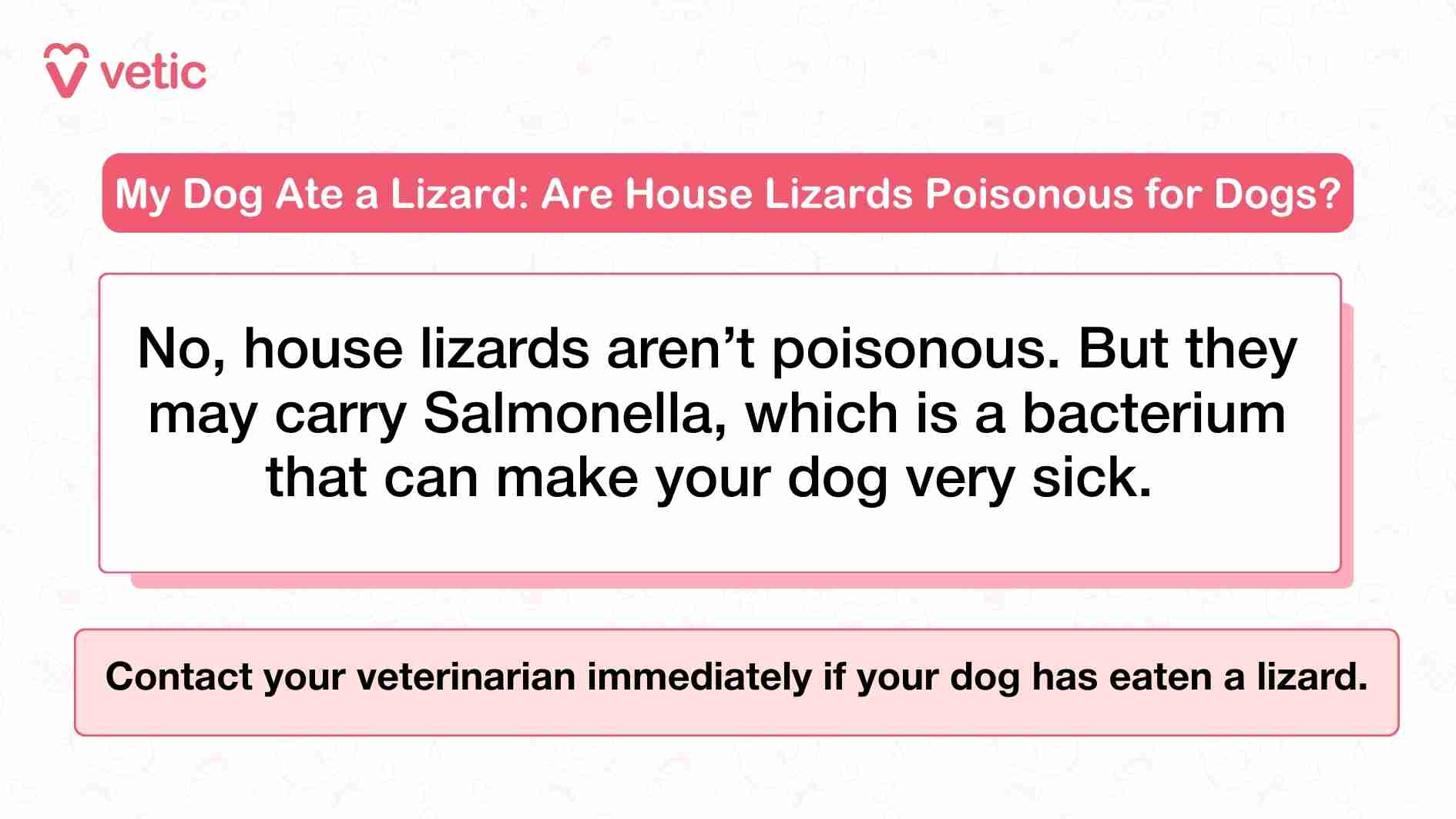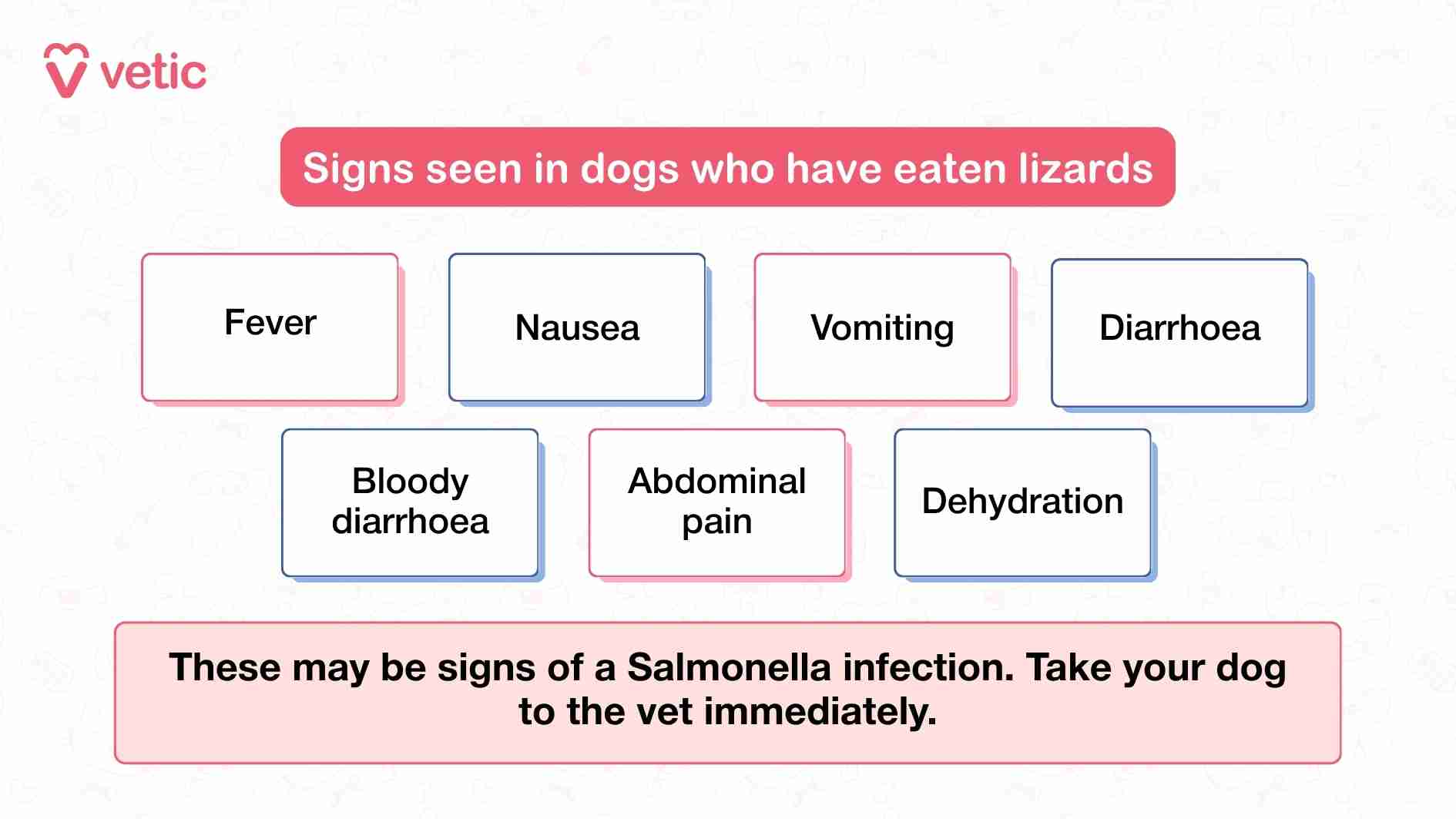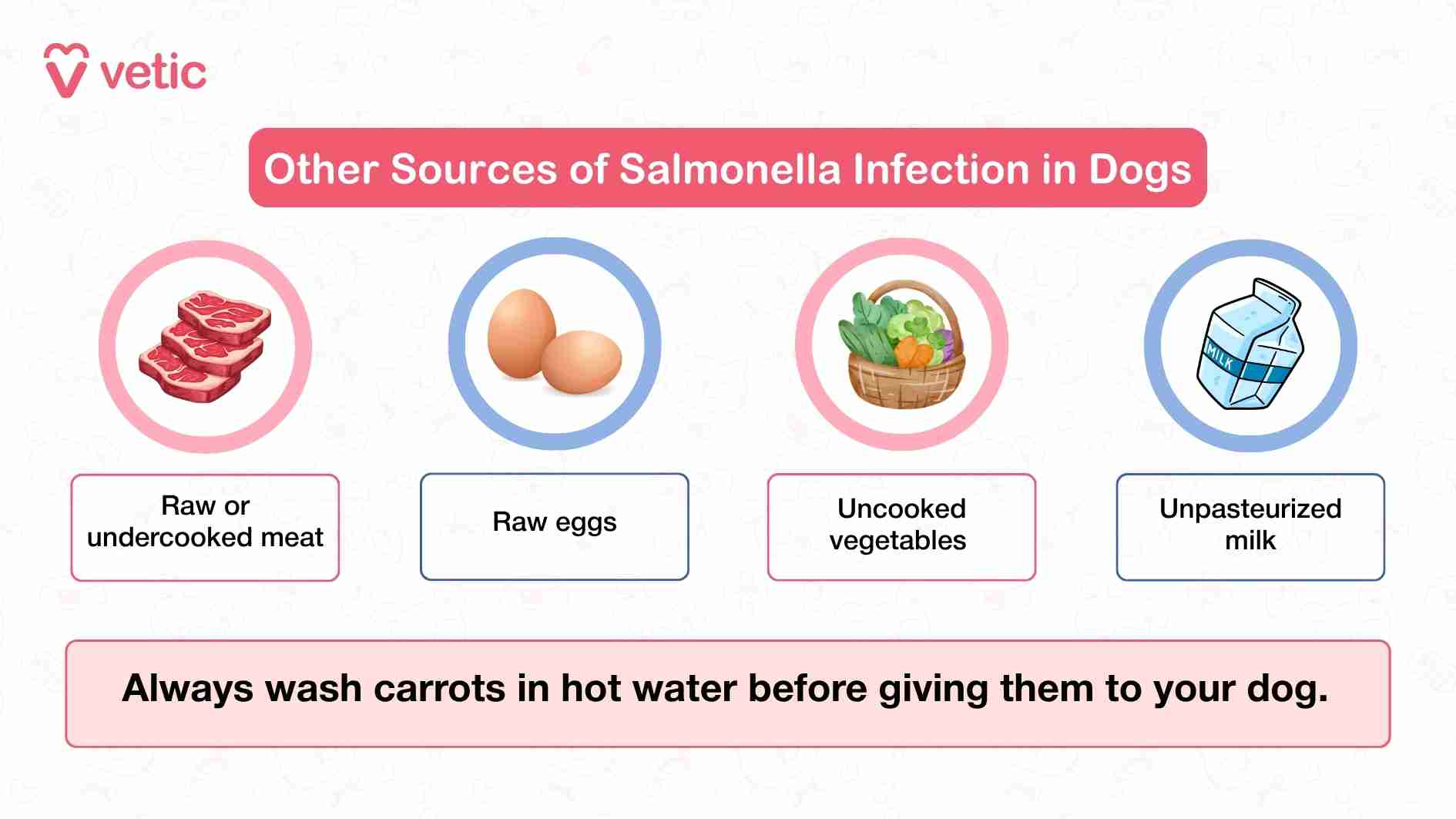My Dog Ate a Lizard: What Should I Do?
Seeing your dog eat a lizard can be alarming, but don’t panic. In most cases, house lizards are not poisonous. However, they can carry harmful bacteria such as Salmonella, which may cause severe illness in dogs. If your dog has eaten a lizard, inform your veterinarian right away so they can evaluate and guide you appropriately.
Are Indian House Lizards Poisonous to Dogs?

Common house lizards, often called geckos in India, are not poisonous or venomous. That means if your dog eats one, they are not at risk of being poisoned. However, lizards can still pose a health hazard because they can carry Salmonella bacteria. This microbe may lead to stomach infections, vomiting, diarrhoea, and dehydration in dogs, especially in puppies, senior dogs, or those with weak immunity.
Can My Dog Get Sick After Eating a Lizard?
Yes, dogs can become sick after eating a lizard if they ingest Salmonella-infected tissue. The severity depends on your dog’s health status and the bacterial strain. Healthy adult dogs often handle mild exposure without major illness, but vulnerable dogs can experience dangerous infections that require immediate care.
What Are the Possible Signs If a Dog Ate a Lizard?

If your dog ate a house lizard and starts showing symptoms of illness, it could be a sign of Salmonella infection. Look out for the following signs:
- Fever
- Nausea
- Vomiting
- Diarrhoea
- Bloody stools
- Abdominal pain
- Dehydration
These symptoms can quickly progress to sepsis or shock if untreated. Take your dog to a veterinarian immediately if these signs appear after eating a lizard.
Diagnosing Salmonella After Dogs Ate a Lizard
If your dog shows signs of illness after eating a lizard, your veterinarian may recommend a stool culture. This test identifies Salmonella bacteria in the stool sample and confirms infection. Early testing provides the best chance for accurate results and effective treatment.
Dog Ate a Lizard – When Should You See a Vet?
You should contact a veterinarian as soon as you notice your dog has eaten a lizard, even if they appear normal. Dogs may develop gastrointestinal symptoms hours or days later. Immediate consultation helps identify potential risks early, especially for puppies, older dogs, or those with prior digestive problems.
How to Treat a Dog That Ate a Lizard
Treatment depends on the infection’s severity.
- For mild cases: Supportive care helps the dog recover without antibiotics. Your vet may recommend fluids and a bland diet.
- For severe or acute enteritis: Antibiotics may be prescribed based on stool culture results. In advanced cases, hospitalization is needed to keep the dog hydrated and warm.
Always tell your veterinarian about the lizard ingestion to help guide the right treatment plan.
Preventing Lizard-Related Infections in Dogs
If your dog has gastroenteritis caused by Salmonella, follow strict hygiene around the house. The bacteria can spread through stool and infect other pets or humans.
Tips for safe recovery:
- Wash hands after handling your dog.
- Keep your dog off furniture, especially beds or couches.
- Separate them from other pets and children until full recovery.
- Disinfect common areas frequently.
Other Common Sources of Salmonella in Dogs

Apart from lizards, Salmonella can spread through:
- Raw or undercooked meat
- Raw eggs
- Uncooked vegetables
- Unpasteurized milk
If your dog enjoys snacking on raw foods like carrots, wash them well in hot water before serving.
Tips for Pet Parents: Keeping Dogs Safe from Lizards
To reduce the chances of your dog eating a lizard:
- Supervise outdoor playtime, especially in gardens and balconies.
- Block gaps or entry points where lizards may hide.
- Feed balanced, complete meals to reduce scavenging tendencies.
- Regularly clean feeding areas and remove food crumbs that attract insects and lizards.
House lizards found in Indian homes are not poisonous, but they can carry bacteria that cause serious infections in dogs. If your dog ate a lizard, contact your veterinarian immediately and watch for early symptoms of illness. With prompt care, most dogs recover well and stay healthy.
FAQs: My Dog Ate a Lizard
What should I do if my dog ate a lizard?
If your dog ate a lizard, observe them closely and contact your veterinarian immediately, especially if they show symptoms like vomiting, diarrhoea, or lethargy.
Are house lizards poisonous to dogs in India?
No, common house lizards found in Indian homes are not poisonous to dogs, but they can carry harmful bacteria like Salmonella.
Will my dog get sick if they eat a lizard?
If the lizard is carrying Salmonella or other pathogens, your dog may get sick, showing stomach upset, diarrhoea, vomiting, or worse symptoms if untreated.
What are the symptoms if my dog ate a lizard?
Watch for signs such as fever, vomiting, diarrhoea, abdominal pain, dehydration, and bloody stools—these may indicate a Salmonella infection.
Do I need to take my dog to the vet if my dog eats a lizard?
Yes, it’s best to consult your veterinarian promptly if your dog ate a lizard, to rule out poisoning or bacterial infection and begin early treatment if needed.
How will my veterinarian diagnose illness after my dog ate a lizard?
Your vet may perform a stool test to check for Salmonella or other bacteria, and base treatment recommendations on test results and clinical signs.
How can I keep my dog safe from lizard-borne infections in India?
Keep play areas clean, supervise your dog outdoors, block entry points for lizards, and always wash fresh foods thoroughly to prevent infections.
References
- Hill’s Pet. (2019, September 8). Are lizards poisonous to dogs and cats? Hill’s Pet Nutrition. https://www.hillspet.com/pet-care/healthcare/are-lizards-poisonous-to-dogs-and-cats
- Hepper. (2025, March 14). My dog ate a lizard: Vet-approved advice & FAQ. Hepper. https://articles.hepper.com/my-dog-ate-a-lizard/
- ScienceDirect. (2007, January 30). Salmonella Montevideo outbreak in military kennel dogs. https://www.sciencedirect.com/science/article/abs/pii/S0378113506003245
- National Center for Biotechnology Information. (2020, August 2). Dogs as a source of Salmonella spp. in apparently healthy environments. https://pmc.ncbi.nlm.nih.gov/articles/PMC7398315/
- MSD Veterinary Manual. (2024, November 7). Salmonellosis in animals – Digestive system. https://www.msdvetmanual.com/digestive-system/salmonellosis/salmonellosis-in-animals
- U.S. Food and Drug Administration. (2023, August 15). Get the facts about Salmonella. FDA. https://www.fda.gov/animal-veterinary/animal-health-literacy/get-facts-about-salmonella
- GeeksforGeeks. (2024, May 6). Are home lizards poisonous? GeeksforGeeks. https://www.geeksforgeeks.org/biology/are-home-lizards-poisonous/
- Salmonella infection (salmonellosis)
- https://www.pasteur.fr/en/medical-center/disease-sheets/salmonella-infection-salmonellosis

